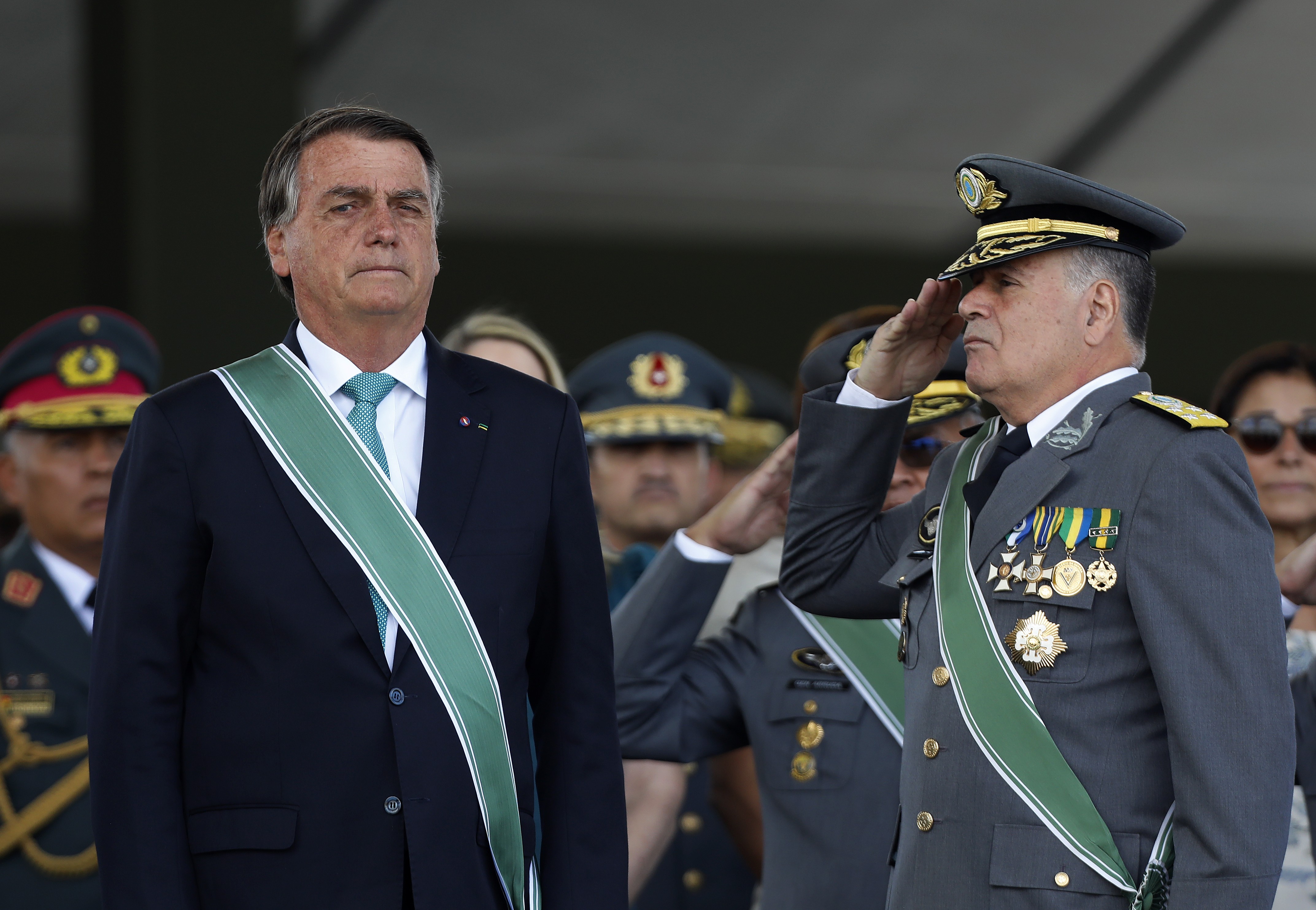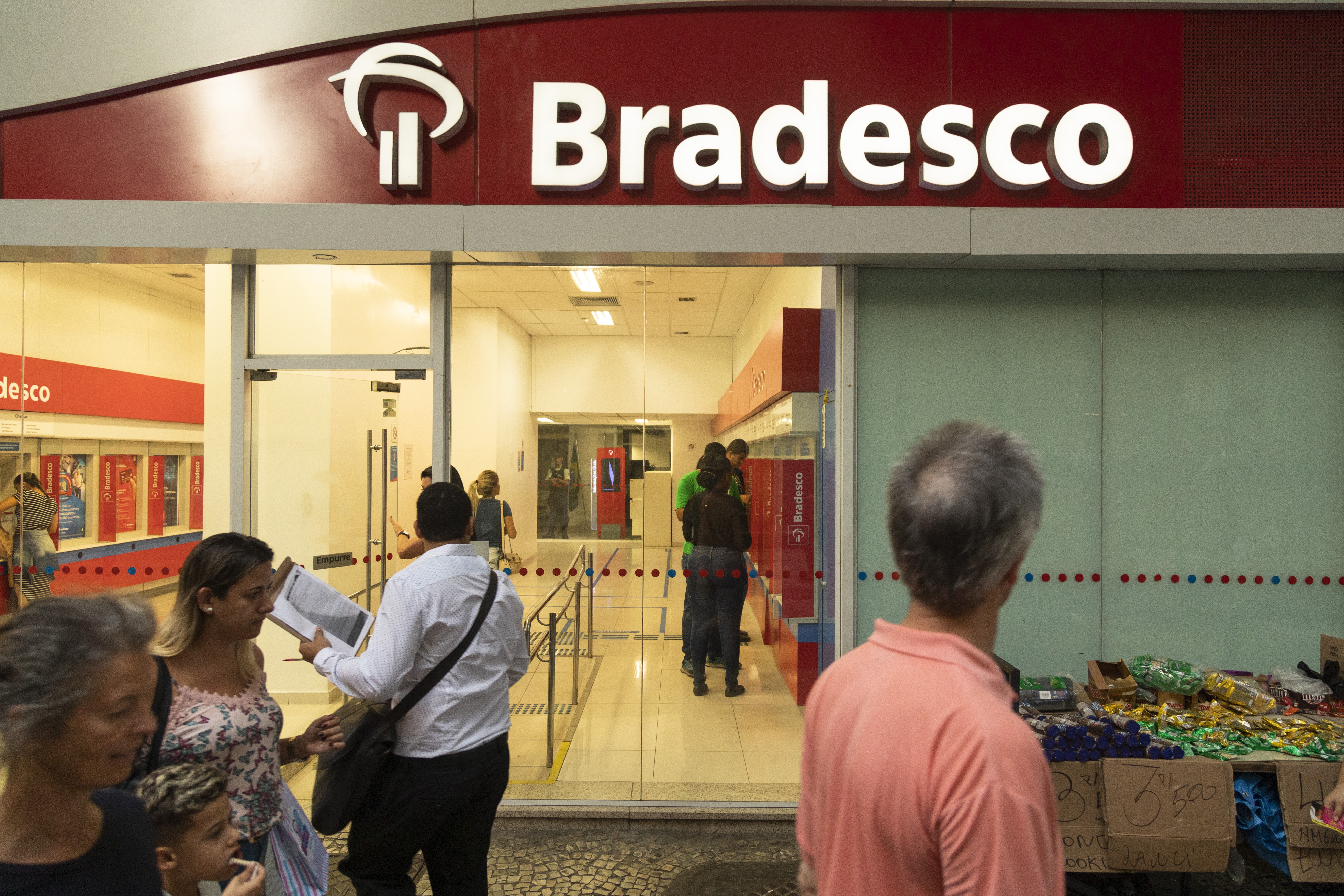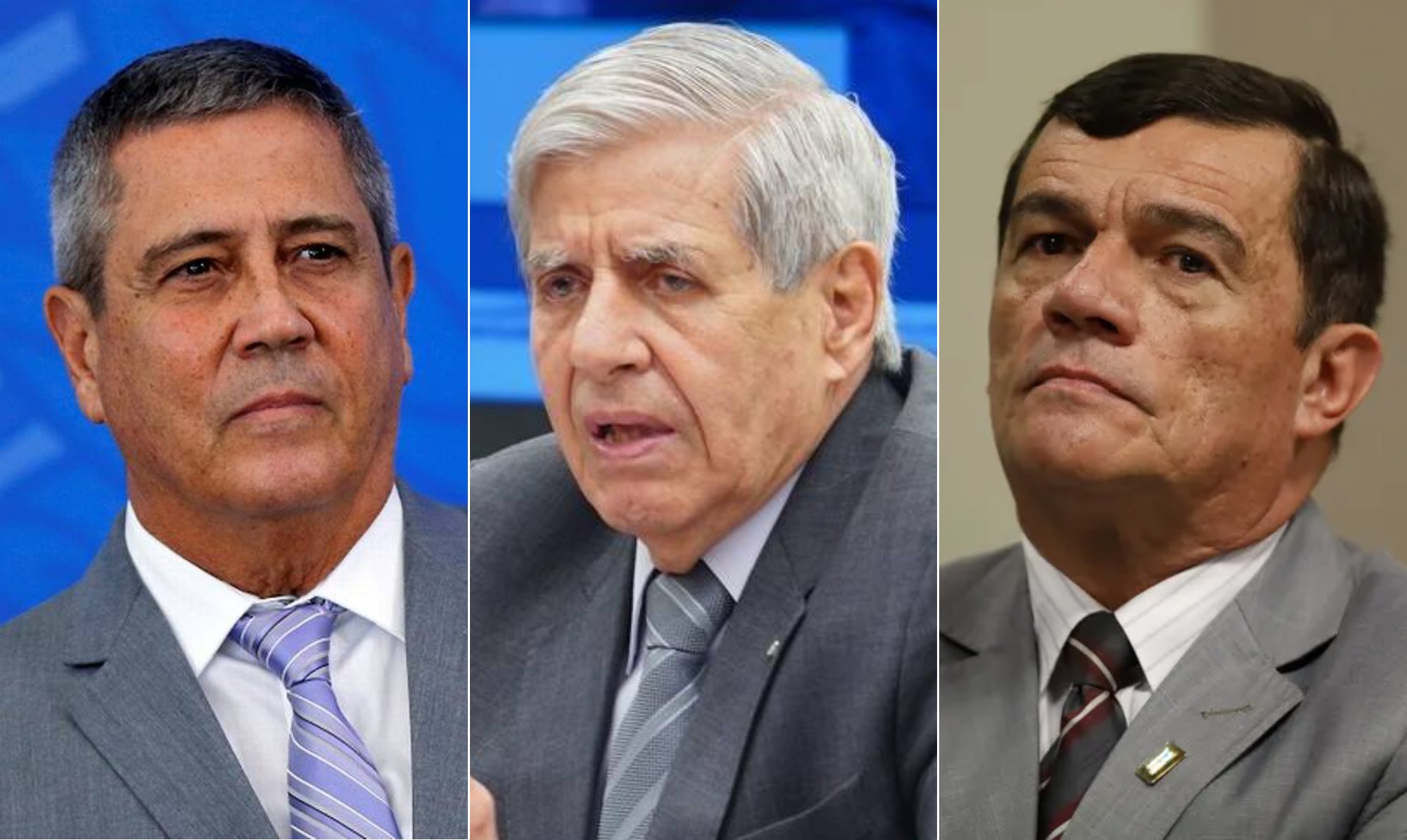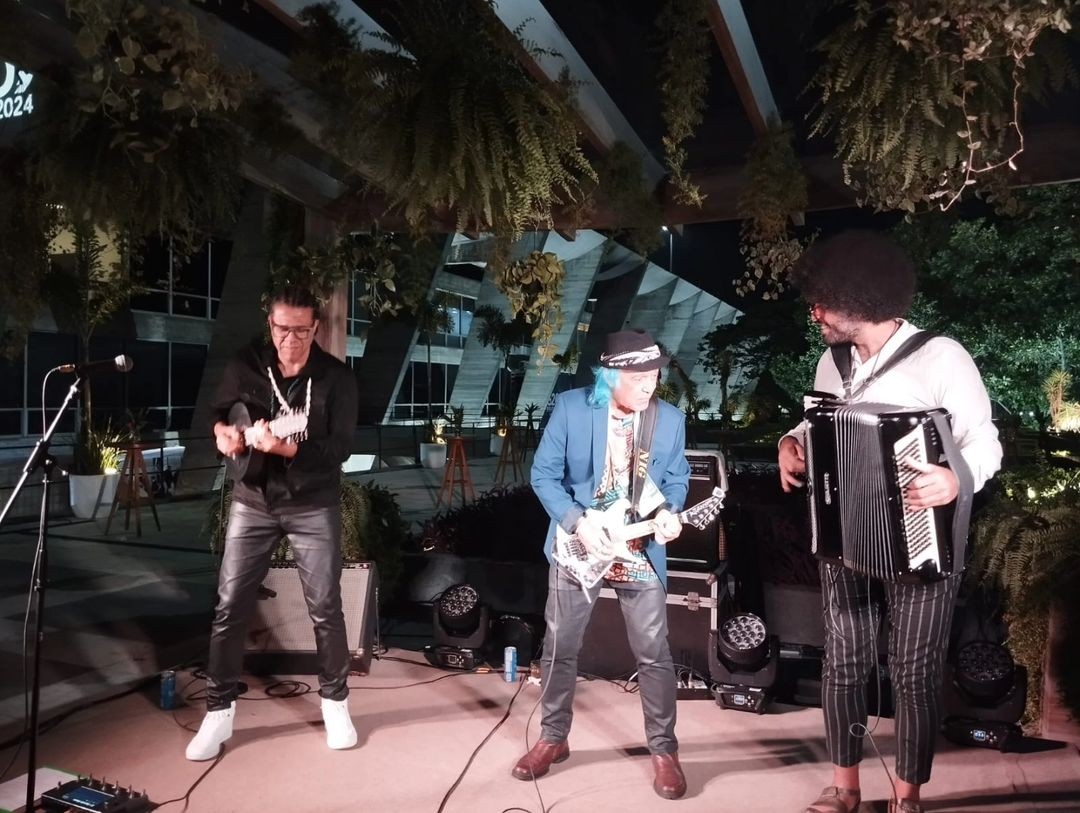G20 social opening plagued by delays and entry confusion
Civil society representatives were blocked and arguments ensued with organizers; credentialed press members were also denied entry Four days remain until the G20 Summit kicks off in Rio de Janeiro, gathering heads of state and government from the world's 20 largest economies, the European Union, and the African Union. However, the city is already bustling with a series of side events. On Thursday, the Social G20 opened its doors to the public at the Museu do Amanhã's auditorium in Praça Mauá. G20 in Rio: See how traffic and commerce will be during the mega-holiday in the capital Meeting: Lula and Biden to announce clean energy partnership, defying Trump This unprecedented initiative by the Brazilian presidency aims to broaden society's participation in discussions among the world's major economies, yet its opening session was marked by delays and entrance confusion. Many individuals hoping to participate as civil society representatives were barred. Arguments erupted with the organizing members, and even credentialed journalists faced entry restrictions. The space accommodates 374 people, according to the Museu do Amanhã's website. Inside the auditorium, the first to speak was Rio's Mayor Eduardo Paes, who thanked President Lula for hosting the G20 in the city, which he referred to as the "self-appointed capital of the G20." — We take great pride in being the face of Brazil to the world — he declared. G-20: Photos from the opening of the U20 and G20 Social this Thursday Paes also made a jest with first lady Janja Lula da Silva, suggesting that "if it were up to her, the president would spend more time here (in Rio de Janeiro) than in Brasília." The remark drew laughter from the audience, though it seemed to slightly displease the first lady. Mayor Paes also acknowledged the presence of federal deputies Benedita da Silva and Jandira Feghali. Moments before the event commenced, with the auditorium already full, Minister Wellington Dias also greeted Benedita da Silva, who was cheered by the audience chanting "Benedita, Benedita, Benedita." The head of the Ministry of Development and Social Assistance, Family and Fight Against Hunger was not on the main opening panel but was present alongside senior members of the Lula administration, including Education Minister Camilo Santana. First lady Janja Lula da Silva spoke next and evaluated Brazil's presidency of the G20, emphasizing the country's determination to include civil society in decision-making processes. — (This presidency) was distinct because it wasn't an isolated presidency of the Brazilian government; it was shared with civil society, movements, institutions, and engagement groups — she stated. — I believe that never in recent G20 history has civil society's presence been so strong and potent. I am very proud to be here making a different story for humanity, hoping we can build a fairer and more fraternal future. Janja also responded to Paes's joke during her address and congratulated him on his birthday. — Samba and beer later at Gávea Pequena? — she quipped, alluding to the official residence of the Rio mayor in the Alto da Boa Vista neighborhood. The first lady further commented on the performance of the "Women's Empowerment" working group, whose final resolution was not signed by Argentina: — Unfortunately, there was only one country that didn't sign, which was Argentina, for reasons that, well... — she remarked critically. — They didn't sign because the resolution started with "gender equality." For me, conceiving a future world without gender equality, where our voice is strong and potent, is unimaginable; I can't fathom that any country would still deny this. Foreign Minister Mauro Vieira reiterated the three pillars Brazil should follow during its G20 presidency: fighting hunger, poverty, and inequality, promoting sustainable development, and reforming global governance. He highlighted the third objective as an unprecedented approach by the group. — President Lula has stated that the world cannot continue to be governed by the geopolitics resulting from the aftermath of World War II in 1945, which has led to a situation today where acts of violence, aggression, death, and war cannot be halted, whether in the Middle East or Europe — Vieira commented. As Brazil's diplomatic chief, Vieira recounted the G20's history, created post-2009 financial crisis initially as a meeting of finance ministers and later transformed into a leaders' forum "to seek solutions for that dramatic moment." He also highlighted the changes proposed by Brazil during its presidency: — Brazil assumes this responsibility earnestly, and President Lula has been committed from day one, deciding on Brazil's pillars and areas of action within the G20. According to the Minister of the General Secretariat of the Presidency of the Republic, Márcio Macêdo, the promotion of the Social G20 could become one of the main legacies of Brazil's temporary presidency in the global forum. Mac
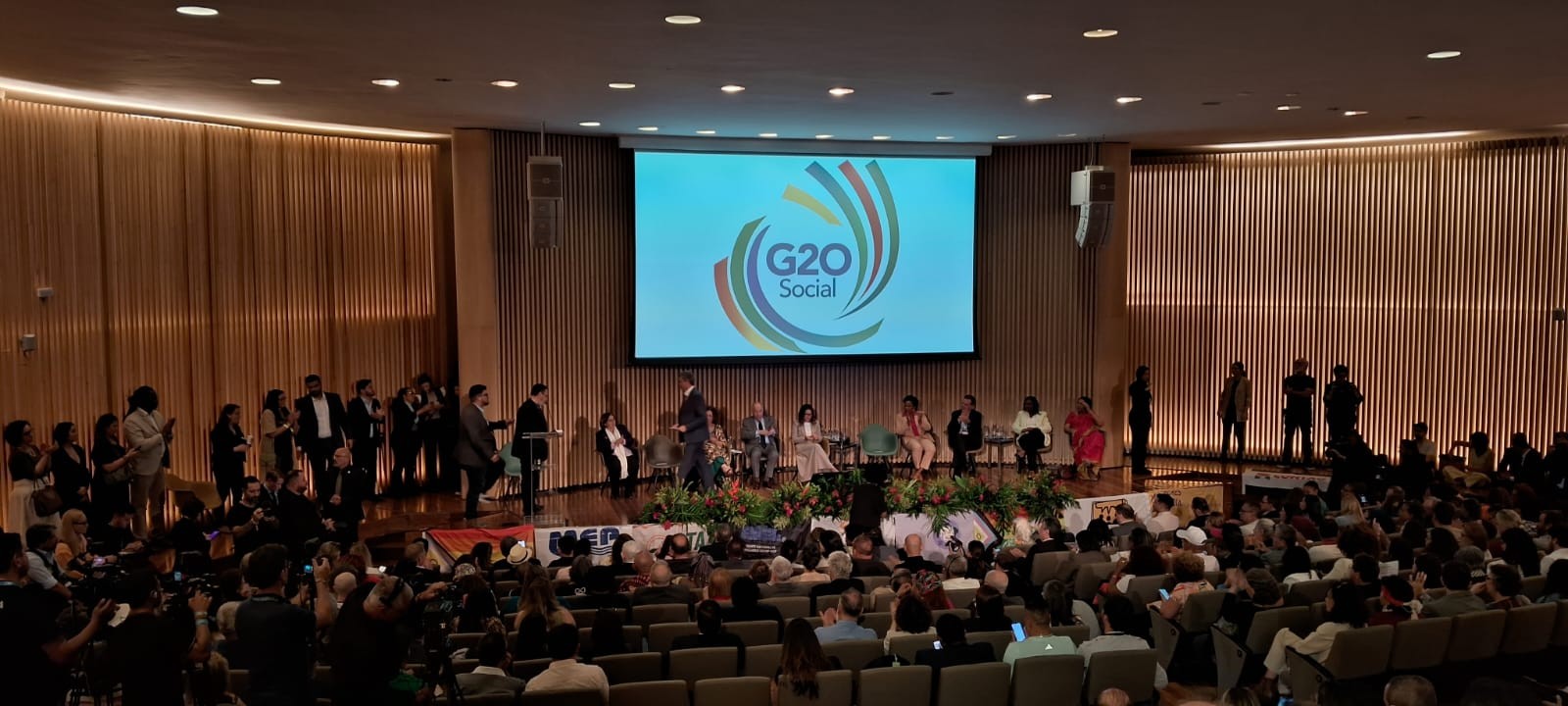

Civil society representatives were blocked and arguments ensued with organizers; credentialed press members were also denied entry Four days remain until the G20 Summit kicks off in Rio de Janeiro, gathering heads of state and government from the world's 20 largest economies, the European Union, and the African Union. However, the city is already bustling with a series of side events. On Thursday, the Social G20 opened its doors to the public at the Museu do Amanhã's auditorium in Praça Mauá. G20 in Rio: See how traffic and commerce will be during the mega-holiday in the capital Meeting: Lula and Biden to announce clean energy partnership, defying Trump This unprecedented initiative by the Brazilian presidency aims to broaden society's participation in discussions among the world's major economies, yet its opening session was marked by delays and entrance confusion. Many individuals hoping to participate as civil society representatives were barred. Arguments erupted with the organizing members, and even credentialed journalists faced entry restrictions. The space accommodates 374 people, according to the Museu do Amanhã's website. Inside the auditorium, the first to speak was Rio's Mayor Eduardo Paes, who thanked President Lula for hosting the G20 in the city, which he referred to as the "self-appointed capital of the G20." — We take great pride in being the face of Brazil to the world — he declared. G-20: Photos from the opening of the U20 and G20 Social this Thursday Paes also made a jest with first lady Janja Lula da Silva, suggesting that "if it were up to her, the president would spend more time here (in Rio de Janeiro) than in Brasília." The remark drew laughter from the audience, though it seemed to slightly displease the first lady. Mayor Paes also acknowledged the presence of federal deputies Benedita da Silva and Jandira Feghali. Moments before the event commenced, with the auditorium already full, Minister Wellington Dias also greeted Benedita da Silva, who was cheered by the audience chanting "Benedita, Benedita, Benedita." The head of the Ministry of Development and Social Assistance, Family and Fight Against Hunger was not on the main opening panel but was present alongside senior members of the Lula administration, including Education Minister Camilo Santana. First lady Janja Lula da Silva spoke next and evaluated Brazil's presidency of the G20, emphasizing the country's determination to include civil society in decision-making processes. — (This presidency) was distinct because it wasn't an isolated presidency of the Brazilian government; it was shared with civil society, movements, institutions, and engagement groups — she stated. — I believe that never in recent G20 history has civil society's presence been so strong and potent. I am very proud to be here making a different story for humanity, hoping we can build a fairer and more fraternal future. Janja also responded to Paes's joke during her address and congratulated him on his birthday. — Samba and beer later at Gávea Pequena? — she quipped, alluding to the official residence of the Rio mayor in the Alto da Boa Vista neighborhood. The first lady further commented on the performance of the "Women's Empowerment" working group, whose final resolution was not signed by Argentina: — Unfortunately, there was only one country that didn't sign, which was Argentina, for reasons that, well... — she remarked critically. — They didn't sign because the resolution started with "gender equality." For me, conceiving a future world without gender equality, where our voice is strong and potent, is unimaginable; I can't fathom that any country would still deny this. Foreign Minister Mauro Vieira reiterated the three pillars Brazil should follow during its G20 presidency: fighting hunger, poverty, and inequality, promoting sustainable development, and reforming global governance. He highlighted the third objective as an unprecedented approach by the group. — President Lula has stated that the world cannot continue to be governed by the geopolitics resulting from the aftermath of World War II in 1945, which has led to a situation today where acts of violence, aggression, death, and war cannot be halted, whether in the Middle East or Europe — Vieira commented. As Brazil's diplomatic chief, Vieira recounted the G20's history, created post-2009 financial crisis initially as a meeting of finance ministers and later transformed into a leaders' forum "to seek solutions for that dramatic moment." He also highlighted the changes proposed by Brazil during its presidency: — Brazil assumes this responsibility earnestly, and President Lula has been committed from day one, deciding on Brazil's pillars and areas of action within the G20. According to the Minister of the General Secretariat of the Presidency of the Republic, Márcio Macêdo, the promotion of the Social G20 could become one of the main legacies of Brazil's temporary presidency in the global forum. Macêdo stated that the initiative changes the standard of diplomatic meetings, typically attended by "30 or 40 distinguished individuals in suits and ties" and "well-dressed women." — If the Social G20 succeeds, these distinguished individuals will never again hold meetings without the people's participation — he emphasized. He added that the South African government has already announced plans to host the Social G20 in 2025, during its temporary presidency of the group. In a press conference late Thursday afternoon, the minister further advocated that resources obtained from taxing the wealthiest could be used to "create a climate fund to help maintain forests." He stated that the results could be used to finance indigenous and quilombola communities living near the forests, as well as peripheral communities surrounding them. From Thursday, Praça Mauá will also host the Global Alliance Festival Against Hunger and Poverty, featuring 30 free concerts until Saturday expected to draw around 40,000 people per day, running parallel to the Social G20 meetings and conferences. The festival, dubbed "Janjapalooza" in reference to the first lady, its creator, is inspired by international concerts such as Live Aid, held in 1985 in the United States to raise funds to combat hunger in Ethiopia, and the Free Nelson Mandela Concert, held in 1988 in London to honor the South African leader's 70th birthday. The program celebrates the diversity of Brazilian culture and will bring together renowned national musicians to engage everyone in Brazil's commitment to leading the Global Alliance to Advocate for "a world free of hunger and poverty, with energy transition, climate justice, and less unequal representation." Thirty-one countries have completed their participation in the initiative, highlighted as Brazil's main proposal during its G20 presidency. According to the Institute for Applied Economic Research (Ipea), one of the organizations providing technical support for the initiative, another 27 governments have submitted requests to join the Brazilian presidency and await approval. Additionally, 50 countries have expressed interest in joining the alliance. On Saturday, President Lula will receive the document consolidating the Social G20 discussions, alongside the final recommendations from each engagement group, in a ceremony scheduled for 11 a.m. at the Armazém da Utopia.
Qual é a sua reação?







